
Microsoft acquired GitHub for $7.5 Billion. While GitHub has been the favorite place for hosting open-source projects, many open-source projects started looking for a GitHub alternative.
Of course, not everyone likes Microsoft. So, it is not a secret that Microsoft does not have a favorable view in the open-source community. Whether you hate Microsoft, or just don’t like GitHub as a platform, the good news is, you have plenty of alternatives!
And this is why I want to suggest some of the best GitHub replacements, where you can host your Git repositories.
The focus here is on GitHub alternatives that offer some sort of free service. GitHub was popular for its free plan. There are several Git repository hosting services, but not all of them provide a free option in their packages.
This list also includes some self-hosted tools, so if you are not a fan of managed hosting services, you might want to look at those.
1. GitLab

GitLab is the number one choice to replace GitHub. It provides almost the same level of experience and features. In some cases, GitLab might be a superior option.
Best of all, GitLab is open-source software. You can download and install it on your server.
Many open-source projects have already been using GitLab. GNOME and GIMP are some examples.
It’s easy to migrate your project from GitHub as well. So, numerous existing projects switched to GitLab when Microsoft acquired GitHub.
You can self-host or opt for GitLab’s premium managed service. Here’s the pricing structure if you want to host at GitLab’s servers.

It can be expensive for some. So, you can try using a cloud service like Digital Ocean that provides one-click installation of GitLab (affiliate link). With this, you can run your GitLab instance for about $20 per month (depending on your minimum requirements) and can have unlimited users collaborate. Digital Ocean also gives $200 free credit to new users.
You can read this tutorial to see how easy it is to deploy GitLab on Digital Ocean servers in minutes.
2. Bitbucket
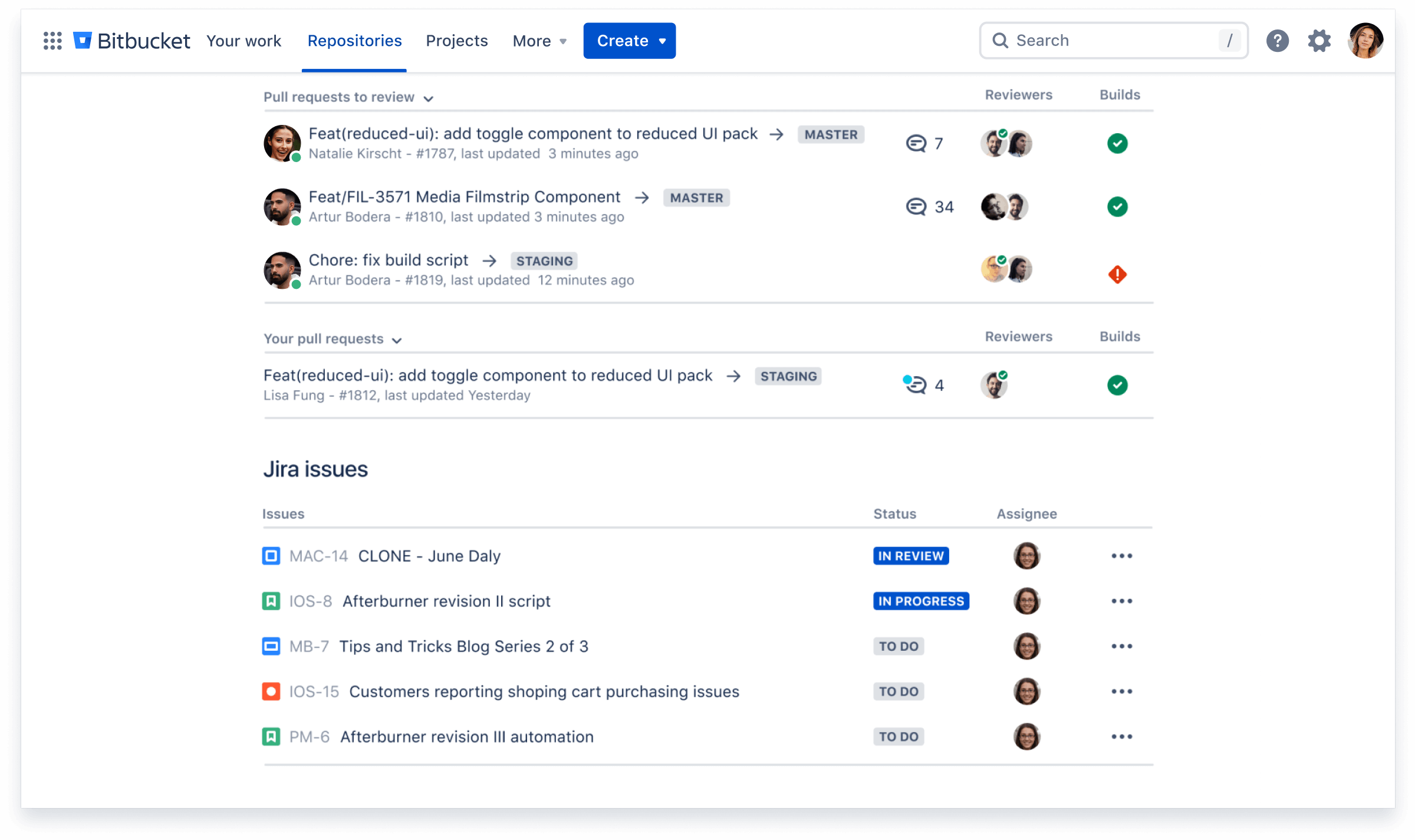
Bitbucket is a version control repository hosting service from Atlassian. It is tightly integrated with other Atlassian project management tools like Jira, HipChat, and Confluence. This makes it a preferred choice for big enterprises.
But you do not have to be a big enterprise to use Bitbucket. It has offers something for everyone.
A free plan to get started, and premium plans for professionals and more features.

Open-source projects with more than five members can still use BitBucket for free. All you have to do is apply for community license and adhere to Atlassian’s open-source guidelines.
You can also opt for its self-managed offering “Bitbucket Data Center” but it is available for a 30-day free trial period. You need to purchase a license key if you need to use it over its cloud offerings.
3. SourceForge

SourceForge is a popular name on the list of GitHub alternatives.
SourceForge has been popular among open-source projects. It may not be the most modern solution, but it provides essential features for collaboration and distribution of open-source software.
Many Linux distributions and projects provide their downloads through SourceForge. It enables developers to create open-source projects by providing all the necessary tools.
SourceForge’s popularity got hit when GitHub became a popular option. However, under the new leadership of Logan Abbott, SourceForge managed to regain its spot in open-source code hosting.
For GitHub migrants, SourceForge provides tools to import entire GitHub repositories or selected repositories into existing projects. This video shows how to use this tool:
4. Launchpad
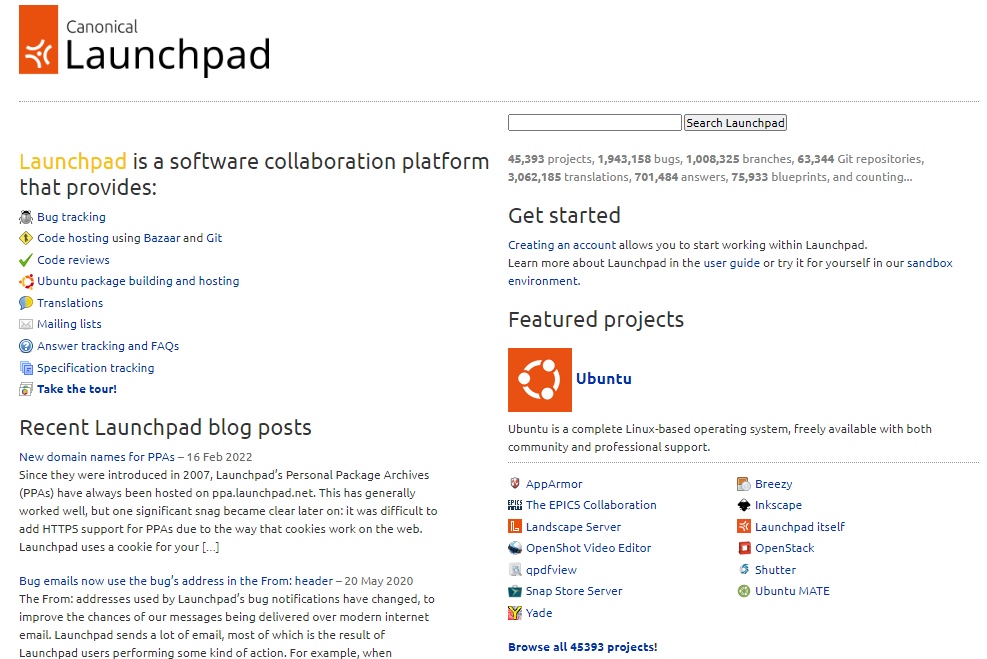
Launchpad is a software collaboration platform by Canonical, the parent company of Ubuntu. Launchpad is extensively used by Canonical and projects around Ubuntu. It has been instrumental in providing the PPA and bug tracking for Ubuntu related projects.
Though Launchpad has been on the scene for years, it has not gained as much popularity as the other GitHub alternatives on the list. It has been typically seen as an ‘Ubuntu stuff’.
That being said, Launchpad has good support for Git. You can host or import Git repositories on Launchpad. And this is entirely free.
Launchpad is a good choice if you can ignore the stale interface and slightly different workflow than GitHub.
5. Google Cloud Source Repositories
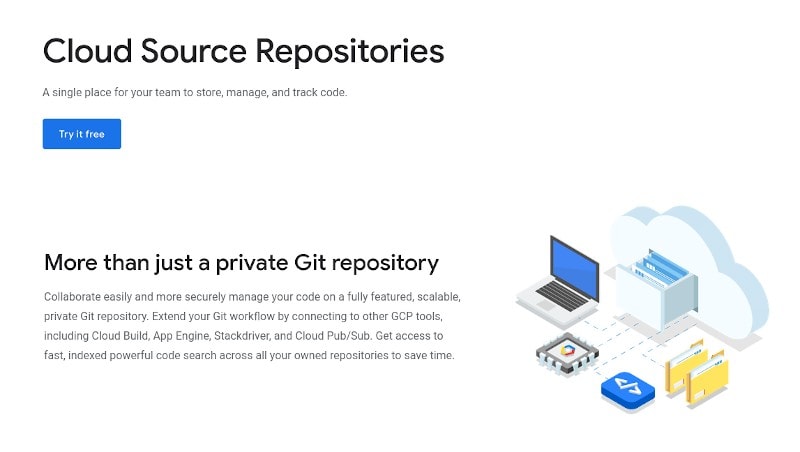
Google Cloud Source Repositories is a good alternative for private repositories. You can get started for free with a limit of 5 users and 50 GB storage. You get a 12-months trial period.
It is worth noting that if you continue using the Google Cloud Platform within the free tier usage limits, you won’t be charged. However, if you want more resources or users for your project, you can opt to upgrade to a paid account manually.
You should check out its pricing list and the free tier details for the trial if you’re interested in a paid account.
6. AWS CodeCommit

AWS CodeCommit is a similar alternative to Google Cloud Source Repositories.
Just like the Google Cloud Platform, AWS also provides a free tier that does not end when the trial ends. So, it’s free forever if your usage is within the free tier limits as mentioned in their official documentation.
You can have 5 users and 50 GB of storage for free to start with. If you want to add more users, you can do it for $1 per extra user for the resources you already have.

And, if you want more resources along with the number of users, you should check out the detailed pricing.
7. GitBucket (Self-Hosted)
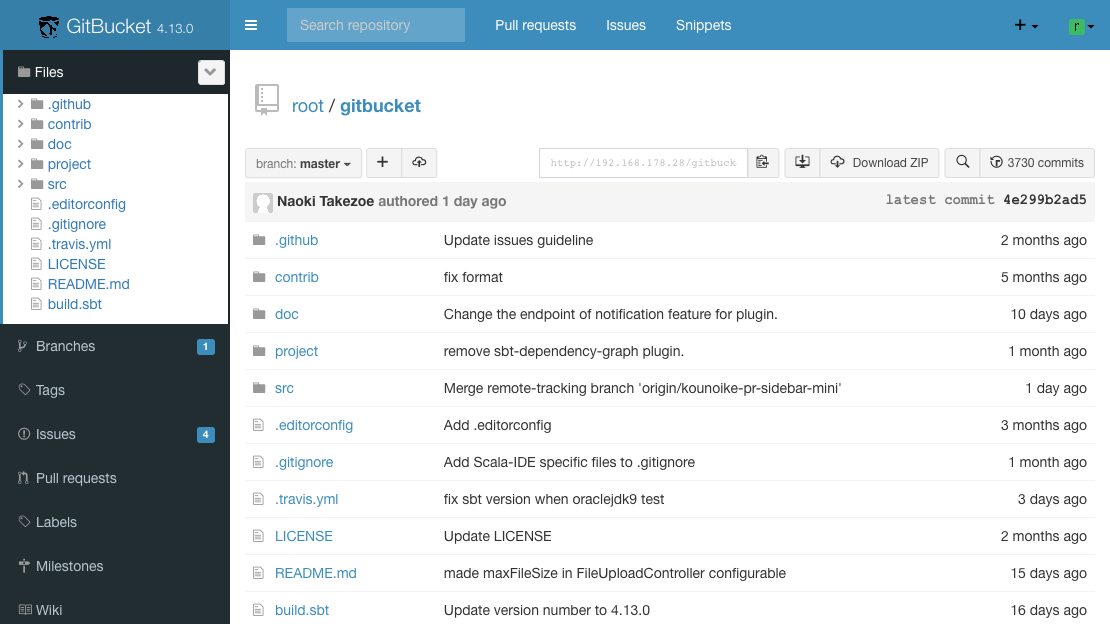
GitBucket is an open-source Git platform powered by Scala. It does not offer any cloud services, so you will have to self-host it.
It lets you create private/public repositories, offers API compatibility with GitHub, and supports plugins.
8. Gogs (Self-Hosted)

Unlike some of the ones mentioned above, Gogs is a completely self-hosted solution to host your code.
Furthermore, it is a very lightweight option that can also run on a Raspberry Pi. Of course, you can also utilize a $5/month cloud hosting solution like Linode (affiliate link) or Digital Ocean.
9. Gitea (Self-Hosted)
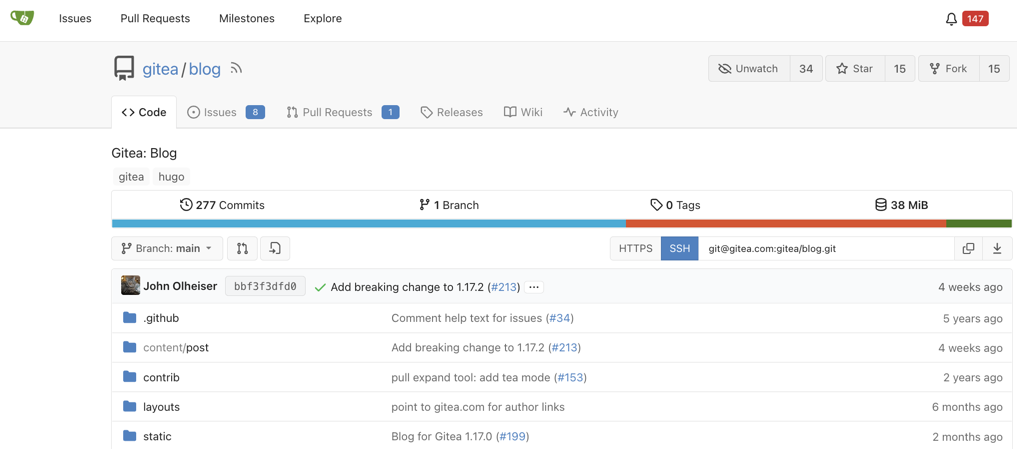
Gitea is a community fork of Gogs (mentioned above). Hence, it is yet another self-hosted Git service as a replacement to GitHub.
Similar to the above, it is a lightweight option that can even run on Raspberry Pi.
10. Apache Allura (Self-Hosted)
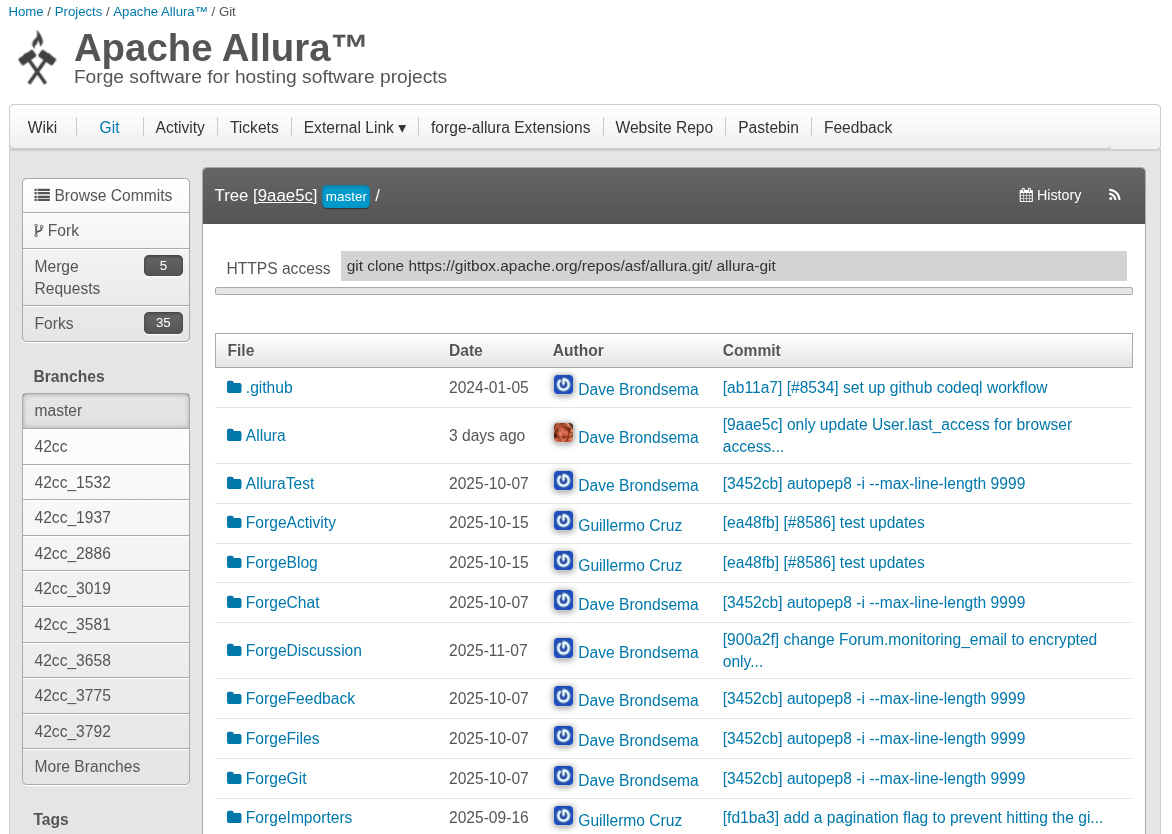
Apache Allura was originally built by SourceForge as an open-source implementation that utilized Python and MongoDB while offering REST APIs. It is indeed a decent GitHub alternative.
You can check out the comparison of its features to its competitors in its official comparison chart and decide for yourself.
11. RhodeCode

RhodeCode is an enterprise-focused code management platform where you get a centralized control for distributed repositories.
It provides a community version which is free and open-source, and you can self-host it. If you want more features, technical support, and managed scalability, you can opt for its premium offerings.
12. ONEDEV (Self-Hosted)

ONEDEV is an interesting GitHub alternative that offers Kanban board and deep CI/CD integration.
You can find several useful features that include a service desk for issues (via email), powerful query language, code search, and more.
13. Codeberg
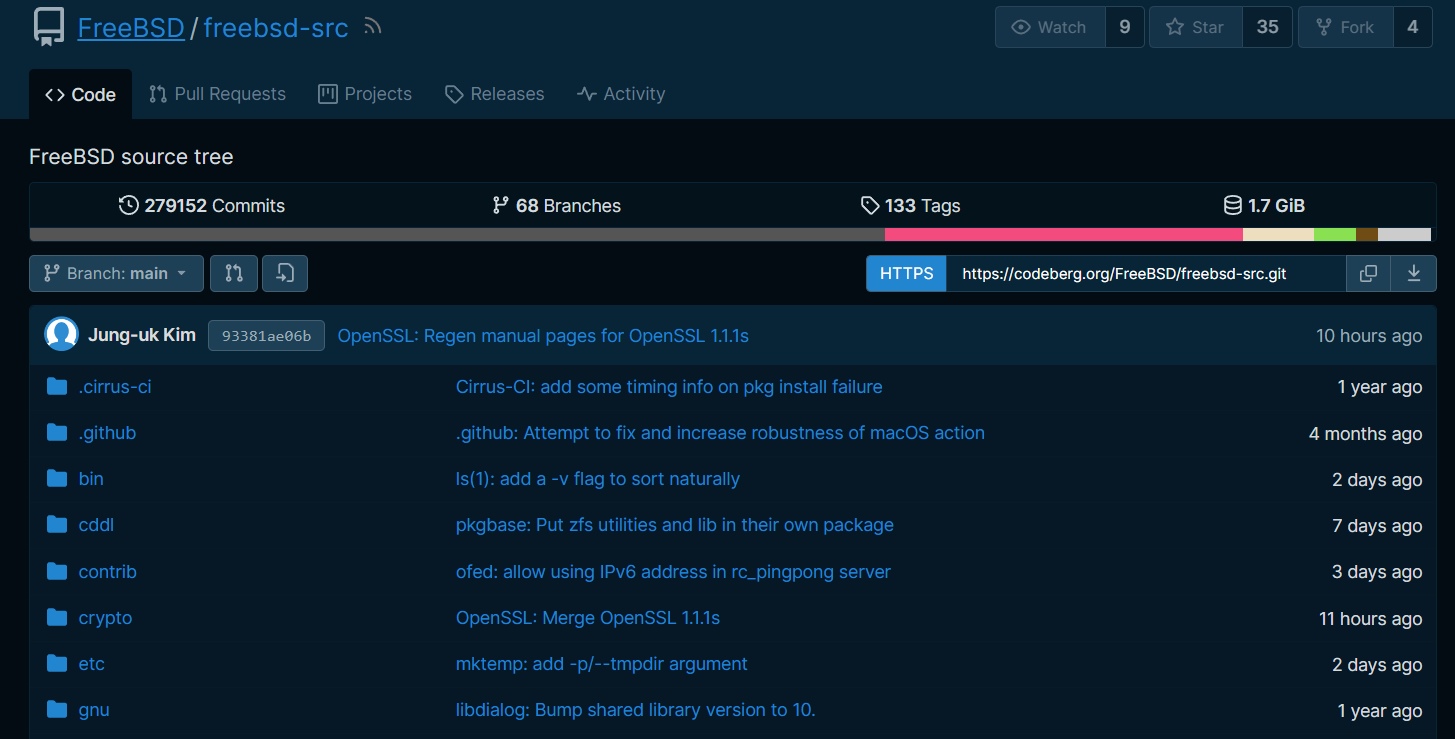
If you like using Gitea, but do not want to self-host, Codeberg is your friend.
Codeberg is powered by Gitea and offers a few extras on top of it. It is free to sign up. You can choose to donate with a subscription as well. If you do, you will have to set aside at least €10 per month to help the platform.
14. Forgejo

Forgejo is a hard fork of Gitea that was created in 2022 when Gitea's trademark and domains were transferred to a for-profit company without community approval.
It is developed under the umbrella of Codeberg e.V., a non-profit organization, and is committed to remaining free and open-source software forever. It also powers the above-mentioned Codeberg too!
15. SourceHut
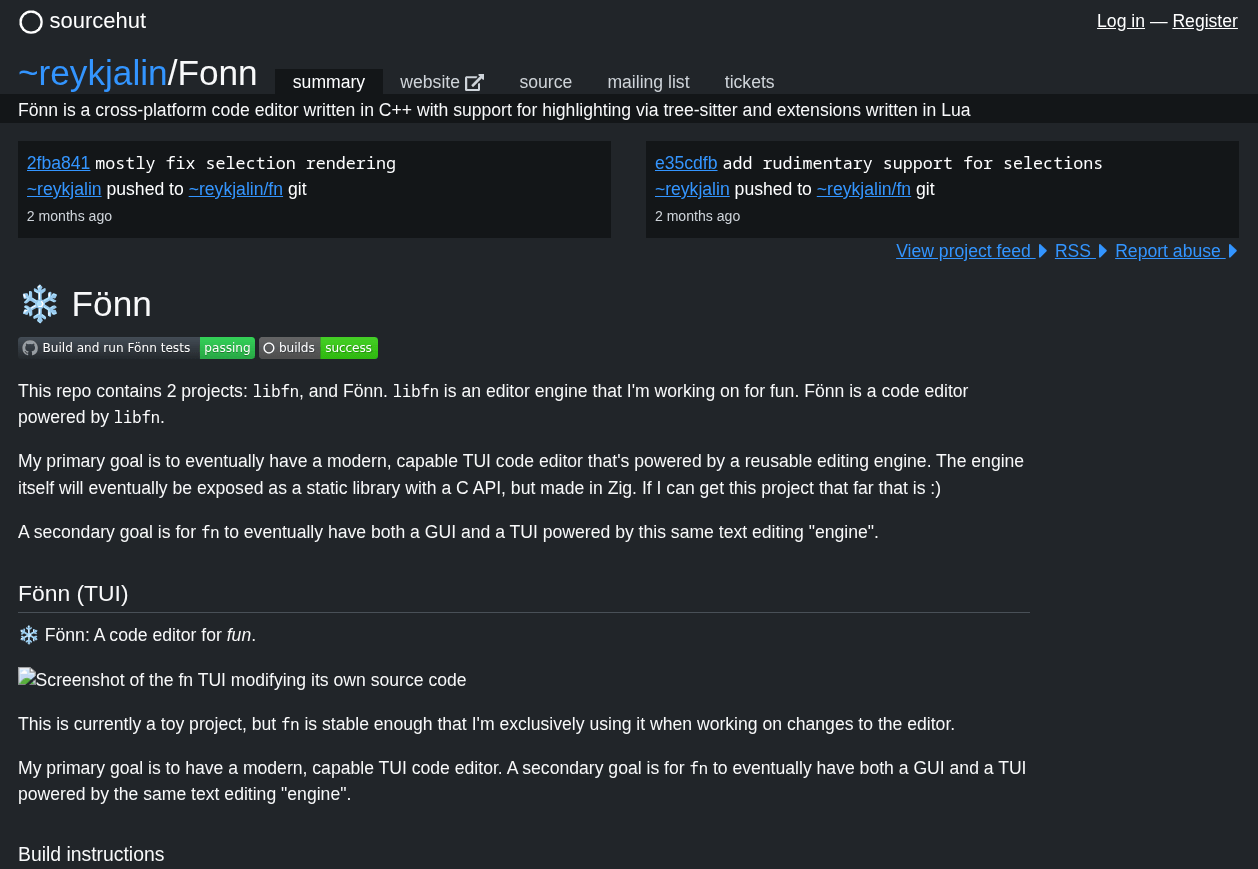
SourceHut is "the hacker's forge," a radically different approach to code hosting that favors simplicity and email-based workflows over flashy web interfaces.
Created by Drew DeVault, SourceHut runs entirely without JavaScript and uses mailing lists for code review instead of pull requests. This might sound old-fashioned, but it's actually quite powerful once you get used to it.
16. Pagure

Red Hat built Pagure for the Fedora project, and it takes an interesting approach to storing data. Instead of putting everything in a database, your code, issues, pull requests, and comments all live in Git repositories.
This makes moving projects around surprisingly simple. You can export everything, mirror it to different servers, or migrate between instances using regular Git commands.
Bonus: Radicle (A Decentralized Peer-to-Peer Code Collaboration Platform)

If you would rather not rely on any single entity, you can try Radicle (in its early development phase while updating this article). No central server, no censorship, and private.
It is a peer-to-peer code collaboration platform where you just need a unique ID to add users to your network and work together to maintain/develop a project. It offers a command-line and a web interface to work with.
You can learn more about it in our coverage on Radicle.
Other GitHub Alternatives That You Can Try
There are several other code hosting platforms that may not be as good as GitHub—but if you want to explore more options, I’ve listed some of them below:
What’s your choice?
There can be more GitHub alternatives, but I’d recommend you to try these first. What would be your choice or recommendation for a source code hosting service to switch from GitHub?
Do share your thoughts in the comments below.

